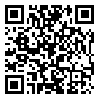The soil pollution especially in urban soils is projected to increase drastically and its effects on chemical cycles are yet to be known. Approaches to measure air and water quality are well established, but urban soil quality assessment has received little attention. Soil quality assessment can help as a way to better understand the pollution increase outcomes in urban environments and to establish approaches and integrated soil quality assessment protocols in urban planning and landscape management. Considering lack of information in urban soil quality of Iran, the objective of this study was to assess soil quality under urban land use effect using minimum data set in western part of Tehran. In view of this, 56 soil samples were collected in three land use types of agricultural, parks and urban landscapes, and vacant urban lots and 12 physicochemical properties were measured. The results of analysis of variance (one-way ANOVA) showed that under influence of the land use types, organic carbon, total nitrogen, lime, bulk density and sodium have significant differences. The factor analysis was used to select minimum data set and the results showed that two factors with eigenvalues more than one, explaining more than 68% of total variance, have the most loading factors on organic carbon and sodium. Finally, soil quality indicator (SQI) was determined and compared in different land use types. The results showed that SQI has significant difference in urban land use types and the least soil quality is related to vacant urban lots.
Received: 2015/04/20 | Accepted: 2017/03/11 | Published: 2018/02/12
| Rights and permissions | |
 | This work is licensed under a Creative Commons Attribution-NonCommercial 4.0 International License. |




